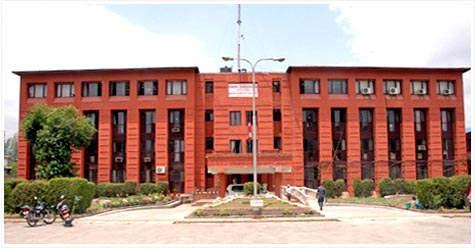First local transmission of COVID-19
Kathmandu, April 4
The first case of local transmission of COVID-19 has been reported in the country.
With this, the total number of confirmed cases has reached nine across the country, of which four are from Sudurpaschim Province.
Ministry of Health and Population today confirmed three new cases of coronavirus infection.
The infection was seen in two persons who recently returned from India, while the third one contracted the infection from a previously infected person.
A 21-year-old male, a resident of Lamkichuha Municipality in Kailali, who had recently returned from Mumbai and a 41-year-old male, a resident of Bedkot, Kanchanpur, who had returned from Uttarakhand of India tested positive for COVID-19.
Besides, a 34-year-old female of Hasanpur, Kailali, without any travel history, has also tested positive for the virus, making her the first-ever local transmission case in the country. She is the sister-in-law of a 34-year-old man, who had recently returned from Dubai.
Having flown to Kathmandu via New Delhi on March 20, the youth had flown to Nepalgunj and then boarded a public vehicle to reach home. He was admitted to the hospital on March 24 as he was suffering from fever and cough. The person had stayed at his maternal uncle’s home in Kathmandu for a day after arrival.
He had tested COVID-19 positive on March 27.
“With the confirmation, all 10 members of his family were placed in quarantine. Their throat swabs were collected and his sister-in-law tested positive. The woman is under treatment at the hospital,” said Dr Jagadish Joshi, Seti Provincial Hospital spokesperson.
All three are undergoing treatment in isolation in Seti Provincial Hospital.
According to the health ministry, the Dubai returnee had been in close contact with 37 persons upon arrival in the country. The government has, till date, traced 34 persons.
Report of the first local transmission case has increased alarm in the country.
Earlier, the country was in Stage 1 where all the confirmed cases had travel history of having gone to an affected country.
“We have now entered the second stage — local transmission,” said Dr Khem Bahadur Karki, consultant for the health ministry.
“As local transmission has been seen in the country, we have decided to refer patients getting service from Seti Provincial Hospital to other hospitals that provide services to COVID-19 patients only.
We have also decided to make a roster of doctors and nurses on duty. As this is an index case there are chances that more number of cases will come in the future. The lockdown in the area should be made more effective,” said Dr Karki.
“Those who have come into contact with persons who tested positive will be traced and tested. Quarantine will be reinforced.
Also, we are planning to use rapid diagnostic kit after its validity for mass testing to prevent community transmission.
Those under quarantine should compulsorily abide by quarantine rules and regulations,” Dr Karki added.
Community transmission is when the source of transmission cannot be traced for a majority of cases.
Confirmed cases in this stage neither have travel history to affected countries nor have they come in contact with any confirmed patients.
This is the third stage.
“We can prevent community transmission if we act properly in the second stage. For this, more testing should be done. We should increase the number of tests in the days to come, isolate and treat patients.
Also, the lockdown should be increased and effectively implemented. If we can do that then we can prevent infection from reaching the third stage — community transmission,” said Dr Anup Bastola, consultant tropical medicine at Sukraraj Tropical and Infectious Disease Hospital, Teku.
A version of this article appears in e-paper on April 05, 2020 of The Himalayan Times.






